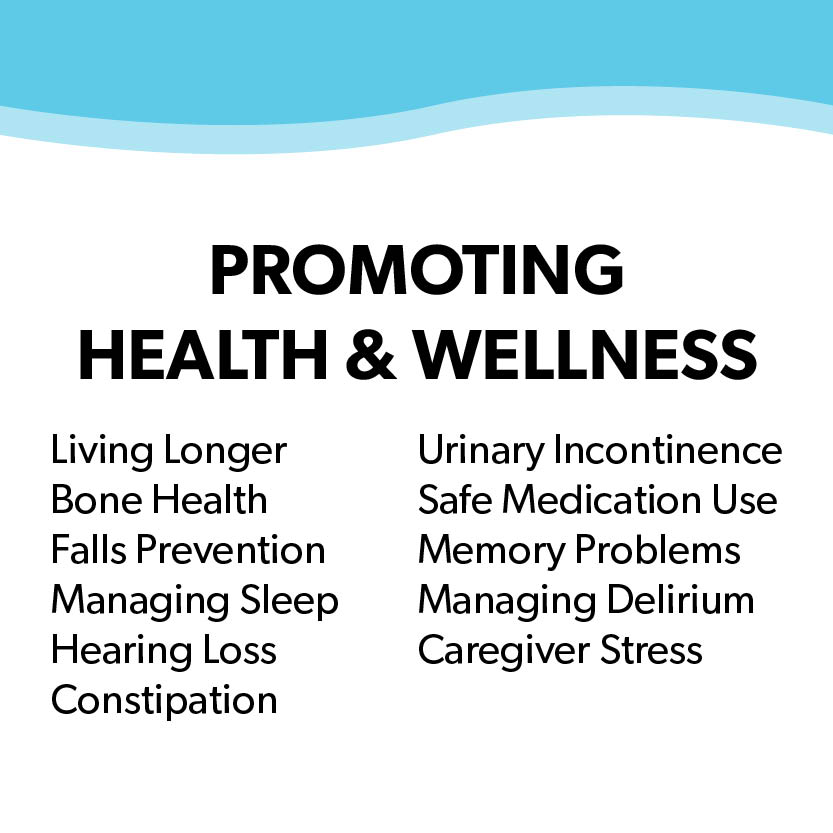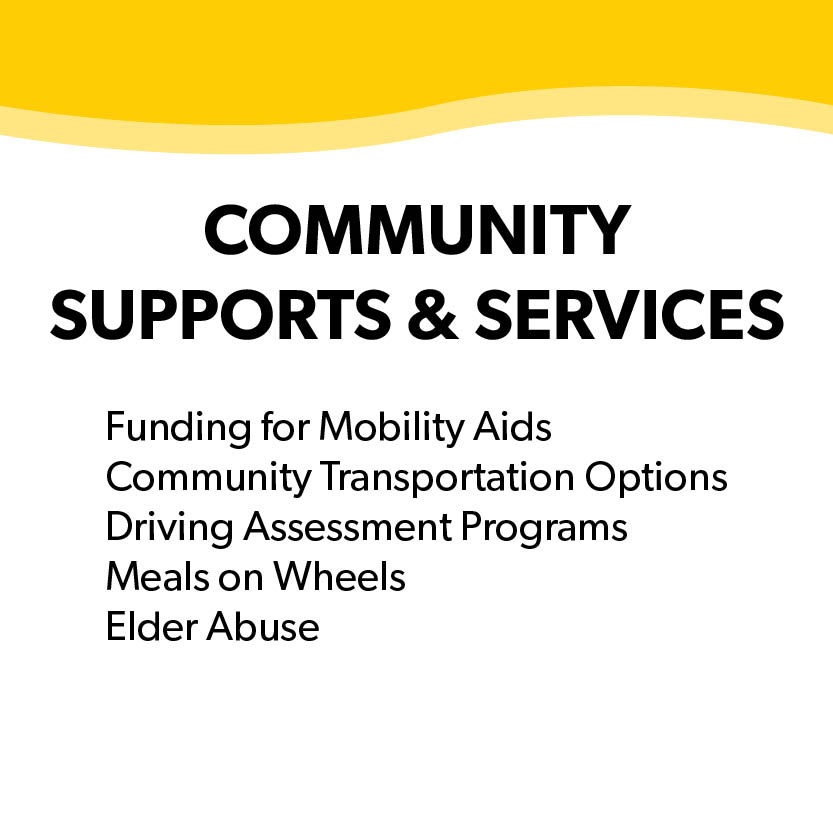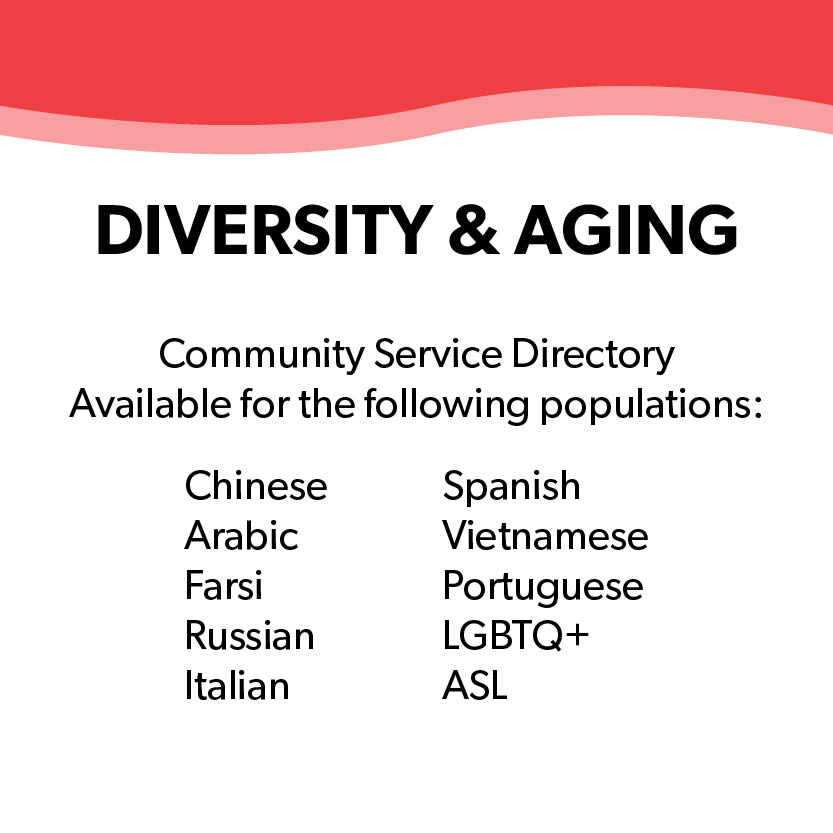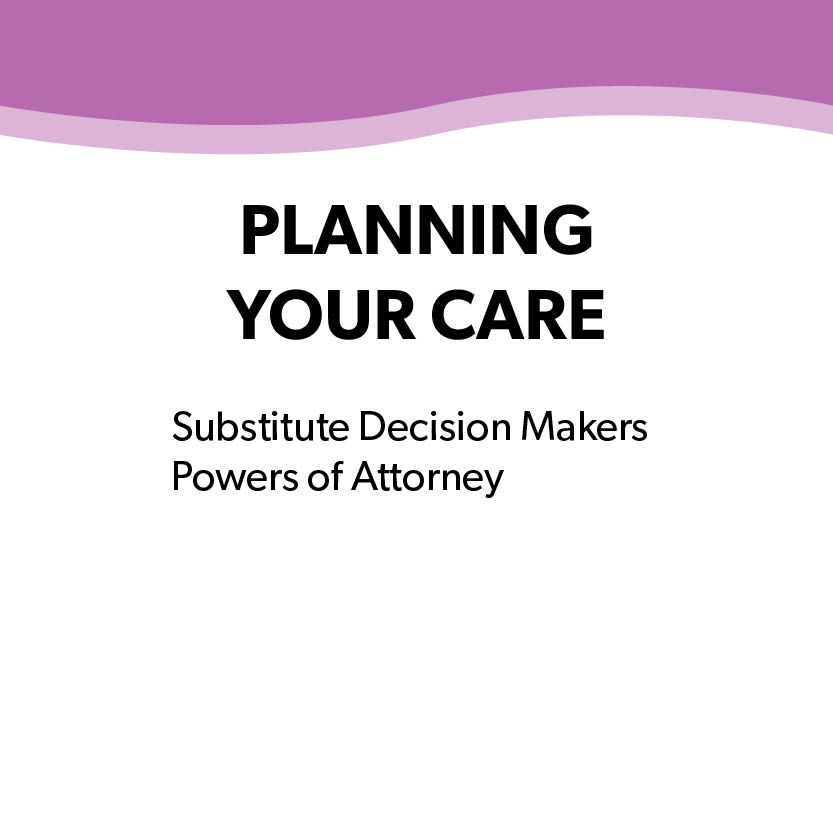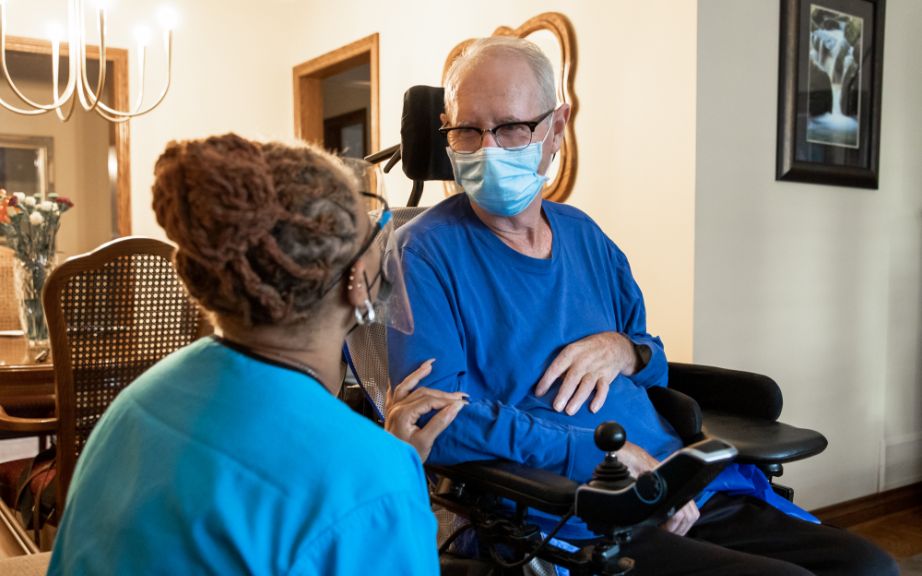
The Ontario Patient Bill of Rights
As a patient, family member, substitute decision maker or caregiver, you have the right to expect that every Home and Community Care Support Services employee, Board member and contracted health service provider shall respect and promote your rights as follows:
- To be dealt with in a respectful manner and to be free from physical, sexual, mental, emotional, verbal and financial abuse.
- To be dealt with in a manner that respects your dignity and privacy, and that promotes your autonomy and participation in decision-making.
- To be dealt with in a manner that recognizes your individuality and that is sensitive to and responds to your needs and preferences, including preferences based on ethnic, spiritual, linguistic, familial and cultural factors.
- To receive home and community care services free from discrimination as per the Human Rights Code or the Canadian Charter of Rights and Freedoms.
- A patient who is First Nations, Métis or Inuk has the right to receive home and community care services in a culturally safe manner.
- To receive clear information about your home and community care services in a format that is accessible to you.
- To participate in the assessment and reassessment of your needs, as well as the development and revision of your care plan.
- To designate a person to be present with you during assessments, and to participate in the development, evaluation and revisions to your care plan.
- To receive assistance in coordinating your services.
- To give or refuse consent to the provision of any home and community care service.
- To raise concerns or recommend changes related to the services that you receive, and with policies and decisions that affect your interests, without fear of interference, coercion, discrimination or reprisal.
- To be informed of the laws, rules and policies affecting the delivery of the home and community care services, including this Patient Bill of Rights, and to be informed, in writing, of the procedures for initiating complaints about the services you are receiving.

Treatment of Staff
Circle of Care strives to create a safe, compassionate, and inclusive environment for all clients, staff, and volunteers. Circle of Care clients and their families (caregivers) are expected to treat all volunteers, office staff, and frontline staff with respect and dignity. Circle of Care will not accept disrespectful behaviours or comments of discrimination, including racism, sexism, homophobia, transphobia, or ableism towards any clients, staff or volunteers.
Therapeutic Relationships
What is a healthy therapeutic relationship?
A healthy therapeutic relationship is a caring professional relationship between a client and their healthcare providers. A therapeutic relationship is client-centered, is focused on the client’s wellbeing, and has defined boundaries. Clear professional boundaries create safety for both clients and staff, establishing clear roles for care.
How will Circle of Care staff work to maintain therapeutic relationships?
All Circle of Care staff will act professionally and respectfully towards clients at all times while maintaining the appropriate boundaries of the client-healthcare provider therapeutic relationship. Staff members will explain the Care Plan to the client at the beginning of their service and will provide compassionate and professional care in alignment with this plan.
Circle of Care clients and their families are expected to treat all staff with respect and dignity and should not develop inappropriate levels of social or emotional intimacy with their care providers, and should not have a social relationship with staff outside of their professional duties.
Warning Signs to Identify Non-Therapeutic Relationships
All relationships between clients and Circle of Care staff should be strictly therapeutic in nature. Clients and staff members should not engage in personal social relationships and must avoid all boundary violations in order to avoid conflict between professional healthcare and social, sexual, religious, or business relationships which would interfere with the provision of care.
Warning signs of a damaged therapeutic relationship may include:
- Having workers perform or asking workers to perform services that are not outlined in your Care Plan.
- Any type of abuse from or towards workers; including physical, emotional, sexual or financial.
- Exploitation of the worker-client relationship.
- Verbal abuse including the use of intimidation tactics or threats.
- Accepting or offering gifts or personal invitations.
- Having a social relationship or spending time with your worker outside of service provision.
- Taking photos or videos without explicit consent.
If you believe there to be a breach in the therapeutic relationship between you and your care providers, call Circle of Care to report the issue. We can address any concerns and help set appropriate boundaries.
I want to learn about...
- How to share a compliment or complaint
- Privacy and safety of my health information
- How to qualify for more hours of care
- What to do if my PSW is late
- Protocols about Pets and Smoking
- What a care plan is
- What to do if my needs change and I need more help
- Service fees and managing costs
- Services on statutory holidays
- Circle of Care's position on Health Equity and Diversity
- Circle of Care's position on Accessibility
- Circle of Care's Policy on Gifts
- What ``light housekeeping`` means
- Zero-tolerance policy
Privacy and safety of my health information
Circle of Care will collect your Personal Health Information during the assessment process to determine which services and supports will be most appropriate for you. Personal Health Information may include:
- Your name, address, and phone number
- Your physical and mental health
- Your personal health history
- Issues that you are experiencing
Your information will be shared with staff providing service, as well as other organizations involved in your care. This information cannot be used for any other purposes without your permission.
If you have agreed to share your Personal Health Information, it will be used to:
- Provide you with care and assistance based on your needs
- Make sure your service providers have the most up-to-date and complete record of your health history and needs
- Help us see where there might be gaps or overlaps so we can ensure you are getting the proper support and services
As a client, you have the right to:
- Have your personal health information kept confidential, unless legally mandated
- Access your personal health information
- Request a correction of incomplete or inaccurate information contained in your health record
- Share your information with your Care Team
Privacy and Security
Client privacy is a top priority at Circle of Care. We collect clients’ personal health information under the authority of the Personal Health Information Protection Act, 2004 (PHIPA). All Circle of Care staff and volunteers sign a confidentiality agreement and are educated on protecting client privacy and compliance with Ontario’s privacy legislation. In addition, strict security and audit controls are in place to ensure your information is viewed only when required.
If you would like to know more about how your personal health information is handled and shared please call 416-635-2860 and ask to speak to the Privacy Officer, or read our page about Privacy.
For more information about your privacy rights, or if you were unable to resolve a problem directly with our agency, contact the Privacy Commissioner of Ontario at 416-326-3333 or 1-800-387-0073.
How to qualify for more hours of care
Care that is funded by the government or a third-party agency is based on an in-person assessment of needs. If your needs have changed over time, please contact your Client Services Supervisor (CSS) who can assist you in contacting the appropriate organization. At any time, clients may also choose to pay for additional hours. For current service rates, call 416-635-2860.
What to do if my PSW is late
If you are awaiting the arrival of your PSW, please remember that your visit has been scheduled to allow your PSW to arrive 15 minutes before or 15 minutes after the appointment time. Many of our PSWs depend on public transportation to get to client visits, so this window provides flexibility for their safe arrival.
Protocols about Pets and Smoking
At Circle of Care, the health and safety of our staff is of the utmost importance. For this reason, we ask that when our staff are in your home that you make arrangements to place pets securely in another room for the duration of the visit. We also ask that all clients and caregivers refrain from smoking at a minimum of 2 hours prior to your scheduled visit. While our staff members are in your home, there should be no smoking under any circumstances.
What is a client care plan?
A care plan is a document that provides specific guidance and instructions about the tasks/duties that are required to meet an individual client’s care needs. The care plan includes a detailed list of duties, along with specific instructions when needed, of all the approved Personal Support, Homemaking and Delegated tasks that have been approved for our PSWs and Homemakers to perform. The Client Services Supervisors (CSSs) and Case Managers (CMs) establish care plans during initial assessments when clients begin their Home Services with Circle of Care through discussion with clients and/or family. Our CSSs and CMs update the plan of care at reassessment and when clients’ needs changes. Once the duties are established, they are added to the client’s care plan to provide guidance to our PSWs and Homemakers so that they can effectively care for and meet the unique needs of our clients.
What to do if my needs change and I need more help
Circle of Care offers a variety of services and supports to help you live independently at home, including: Personal Support, Exercise & Fall Prevention Classes, Transportation, Kosher Meals on Wheels, Day Centre for Seniors with Alzheimer’s & Dementia, Caregiver Support and Visiting Hospice. Call us at 416-635-2860 to learn more.
Service fees and managing costs
We believe the cost of care should not be a barrier to getting support that is needed.
For those who are eligible for government-funded care, a number of our services can be obtained at no cost through agencies such as Home & Community Care Support Services (formerly called the LHIN), or the City of Toronto. There are also supports and services available for eligible Holocaust survivors and veterans. We can help you find your way, and advocate on your behalf to access these benefits.
For clients or family members who are not eligible for government-funded care, services can be purchased. (Click here to view our current service fees.)
Do not let concerns about cost stop you from inquiring about services. Please contact us to find out about how you or your loved one can afford to stay at home.
Services on statutory holidays
Services and programs including Personal Support, Kosher Meals on Wheels, Transportation, and Adult Day Program are generally not provided on statutory holidays. In some situations, exceptions to this rule may be made depending on the complexity of a client’s needs.
Circle of Care’s position on Health Equity and Diversity
At Circle of Care, we recognize, respect and celebrate the valuable differences that each of us bring to our organization and to the community.
Circle of Care is dedicated to a health equity focus in all aspects of its operation including:
- fostering a positive and respectful work environment that is free from harassment for all our employees, students and volunteers;
- providing an inclusive working environment where everyone feels valued and respected
- respecting the diversity and dignity of every employee, volunteer, client and caregiver;
- providing equitable and accessible services for clients and their caregivers.
Diversity includes, but is not limited to, age, gender, ethnicity, physical and mental disabilities, sexual orientation, race, nationality, marital and/or parental status, lifestyle, religion, and education.
Circle of Care’s position on Accessibility
In 2005, the government of Ontario passed the Accessibility for Ontarians with Disabilities Act or “AODA”. It is the goal of the Ontario government to make Ontario accessible by 2025. The Integrated Accessibility Standards Regulations (“IASR”) under the AODA, require that Circle of Care establish, implement, maintain and document a multi-year accessibility plan which outlines the Agency’s strategy to prevent and remove barriers for people with disabilities and to meet its requirements under the IASR.
Circle of Care is committed to treating all people in a way that allows them to maintain their dignity and independence. We believe in integration and equal opportunity. Circle of Care is dedicated to fostering an inclusive environment for our employees, clients and volunteers.
We are committed to:
- Ensuring equal access and participation for people with disabilities.
- Meeting the needs of people with disabilities in a timely manner.
- Meeting our accessibility requirements under AODA.
- Customer Service Standards
We Want to Hear From You
Please tell us how we are doing providing service to people with disabilities. Feedback can be made using the following methods:
Mail:
Circle of Care
attn: Human Resources
4211 Yonge Street, 4th Floor
Toronto, Ontario M2P 2A9
Phone:
Telephone: (416) 635-2860
Fax:
Fax: (416) 635-1692
Email:
accessibility@circleofcare.com
Circle of Care’s Policy on Gifts
Circle of Care discourages employees from accepting gifts or favours from clients that are offered in gratitude for services rendered or anticipated. At the same time, Circle of Care acknowledges that employees and volunteers may, from time to time, develop relationships with clients arising from the nature and duration of assistance provided by the employee/volunteer. In the event a gift of gratitude is made by a client to an employee/volunteer, it the responsibility of the employee/volunteer to inform their Manager/ Supervisor prior to accepting the gift. It is the responsibility of the Manager/ Supervisor to contact the client and/or family to acknowledge the gift and provide next steps.
If a client or family member would like to recognize a staff member for their excellent work, we ask that you submit a Champions of Care nomination. You may also choose to make a donation to Circle of Care through our Celebrate Care program in honour of the worker.
What does “light housekeeping” mean?
One of the tasks that a PSW or Homemaker can do for a client is light housekeeping, such as dusting, wiping down counters, or sweeping the floor. Approved areas for cleaning include the client’s bedroom, the bathroom, kitchen, and living room. Light housekeeping can also include assistance with laundry (machine only) if client has a minimum of 2-hours for a visit.
PSWs and Homemakers are an unregulated profession. They are required to perform duties that are within their scopes of practice. A care plan will always include duties that within the scope of our Workers. There are certain duties that are PROHIBITED as they do not fall under the scope of practice and clients should not ask or insist that PSWs or Homemakers perform those tasks. The following are some examples of prohibited tasks which are not part of the services provided by Circle of Care and not approved for our PSWs and Homemakers to perform:
- Heavy/detailed cleaning, including scrubbing of any other surface, washing walls/doors/furniture etc
- Lifting or moving furniture or any large or heavy object
- Caring for client’s pet(s), including cleaning or removing pet excrement or pet hair
- Ironing/steam pressing of laundry or linens
- Climbing, crawling, stretching, reaching beyond natural limits
- Clean mirrors (except for bathroom mirror with supervisor approval)
- Take down or hang drapes/curtains
- Clean light fixtures
- Clean the basement, garage, balcony or any areas outside of approved rooms
- Perform tasks outside the home, such as snow removal, mowing lawn
- Use wax on floors
- Carry large/heavy loads of laundry
- Empty ashtrays
- Use appliances with frayed cords
- Use gasoline, kerosene or benzene as cleaning fluids
- Handle paint or hazardous chemicals; Responsible for securing/storing paint and hazardous chemicals
- Use electrical space heaters or appliances in the bathroom, laundry room, near the kitchen sink or other areas that may be near water
Our Zero-Tolerance Policy
At Circle of Care, we are dedicated to fostering a culture of respect, inclusivity, and compassion. As part of this commitment, we maintain a strict zero-tolerance policy against any form of harassment, violence, discrimination, or abusive behaviour directed towards our employees, volunteers, or clients.
Harassment includes any unwelcome conduct, comments, or actions that create a hostile or unsafe environment. We firmly believe in maintaining a safe and supportive workplace for our team and clients alike. Any form of violence, be it physical or verbal, will not be tolerated under any circumstances.
Discrimination based on race, ethnicity, gender, sexual orientation, age, disability, or any other characteristic is strictly prohibited within our organization. If our staff experience any of these behaviours during their visit, they will be directed to leave the premises immediately without compromising the safety of the client.
Reporting Incidents
If you, as a client, witness or experience any behaviour that violates our zero-tolerance policy, we strongly encourage you to report it promptly. Your concerns will be treated with the utmost confidentiality, and appropriate measures will be taken to address the issue.
Please reach out to any member of our staff, a supervisor, or our management team to report incidents. Your feedback is vital in upholding our commitment to providing a safe and respectful environment for all.
Stay Connected to Your Care with EZ Assist
Our new app, EZ Assist, allows clients or family members to securely log in from their phone and view real-time information about upcoming appointments, cancel appointments, and see confirmation that visits have taken place. Our app is an added peace of mind for caregivers who live a distance from their loved one.
Make Your Voice Heard: Join our Group of Client & Caregiver Advisors!
At Circle of Care, we believe that clients and their caregivers should have a strong voice in their own care and care of their loved ones.
This is why we are inviting you to become one of our client and caregiver advisors. You will have an opportunity to share your thoughts and ideas on improving our services and help us provide the best possible care to you and your loved ones.

Health Education from Sinai Health
Sinai Health’s Healthy Ageing and Geriatrics Program is at the forefront of leading and innovation in the care of older Canadians. Our affiliation with Sinai Health gives us access to this remarkable resource. The Older People’s Education and Navigation Strategy (OPENS) initiative seeks to provide reliable information to seniors, caregivers, families, and health care professionals on topics that lead to healthy aging.
Click each box to explore these resources.

